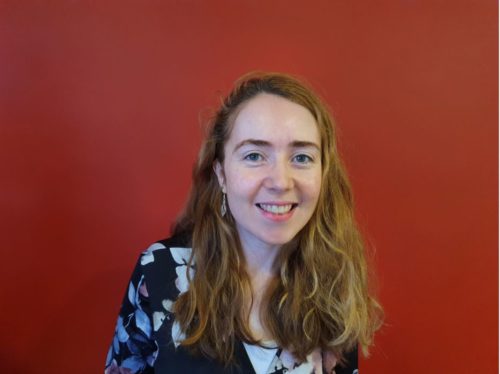
Sleep researcher Dr Emer Van Ryswyk, recipient of a 2020 Vice-Chancellor’s Award for Early Career Researchers, is seeking to improve sleep disorder management in primary care. We spoke with Emer about her work within a multidisciplinary team as part of the NHMRC-funded National Centre for Sleep Health Services Research.
Was there a particular event that ignited your passion for your field? I first took up the opportunity to explore sleep health research when I was a medical student. I didn’t know much about sleep back then; it wasn’t something that featured much in our curriculum, and I was curious. As I became involved in the sleep research, I realised just how fundamentally important sleep is to all aspects of human health and safety/productivity. Additionally, I found that the sleep health researchers were an exceptionally lovely bunch of people!
What led you from Medicine to research? There were two main drivers: firstly, I had an exceptionally positive experience of research as a medical student, under the supervision of the late Professor Nick Antic, and Dr Melanie Harris, who gave me fantastic guidance and helped me achieve my first publication. The second main driver was my personal experience with chronic disease. My experience of the limitations of medicine in its current state, and my understanding of the difficulties faced by those with chronic disease trying to navigate a complex and often inadequate health system, led me to health services research, and a particular focus on sleep health.
I believe sleep health to be a field of very high importance that still has a great deal to be investigated, and I am interested in all aspects of sleep research, from basic physiology to translation.
How does your work benefit the wider community? We are working towards implementation of our suite of practice change support tools to achieve two main goals:
1: improving access to high quality care for obstructive sleep apnoea in a primary care setting, which will likely reduce wait times for care, improve patient satisfaction, and lower cost for the healthcare system, and
2: we are seeking to reduce the rate of potentially dangerous sedative-hypnotic prescriptions for people with insomnia, and replace them with cognitive behavioural therapy-based treatments, which are recommended in guidelines as the first-line treatment. This treatment, unlike sedative/hypnotics will address the underlying cause of the sleep condition.
I truly believe that the work we are doing will benefit many in the community so long as we have the opportunity to carry it out effectively with adequate funding.
What has been your proudest moment as a researcher? I have had so many proud moments as a researcher that it’s difficult to pick just one! I was very proud of publishing my first systematic review of qualitative/survey studies, because of the sheer number of women (~8,000) whose views I was able to convey in that study, which was reporting on the factors influencing care seeking for type 2 diabetes testing after a pregnancy with gestational diabetes. I am most proud when I feel that my research is likely to benefit people the most.
What has been your most challenging moment? Returning from maternity leave, feeling like I was in a precarious position, and not knowing what my future held, was difficult, but I now feel greatly supported after becoming involved with the NCSHR team, who are an exceptionally great bunch of people.
What does a normal day look like for you? Coffee, making a to do list (there’s always so much to do!), carrying out all the tasks necessary for preparing for our primary care based implementation trials, writing manuscripts where I can, attending meetings to plan our next move and report back on what we have done so far, and attending committee meetings too (I am a member of several, and I very much value the broadening of my experience and the ability to contribute to the wider University community this way).
How has COVID-19 changed your work? We’re all working from home more, which is nice sometimes, but I do miss meeting in person. Ironically, COVID-19 has increased our ability to meet more often with our interstate/overseas colleagues because we are having more online meetings.
Tell us something about yourself that others may not know: Apart from spending time with my family, whom I adore, I am happiest when I am physically active! I trained as a gym instructor when I was 19 and have a strong passion for physical activity, whether it be at the gym, on a bike, in a kayak, on a run or even just having a lovely walk.

